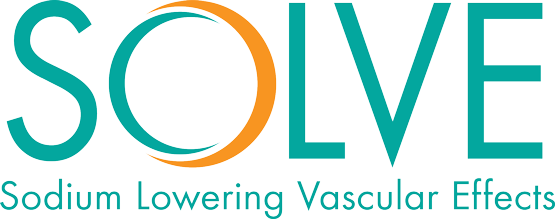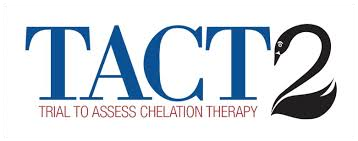
SOLVE Trial – Sodium Lowering Vascular Effects
The Sodium Lowering Vascular Effects (SOLVE) trial is a mechanistic trial that will test the effect of dietary sodium reduction on cardiac and vascular structure and function in participants with elevated blood pressure or hypertension. Findings from this study will fill the knowledge gap on the underlying mechanisms of dietary sodium intake on cardiovascular disease risk in addition to blood pressure and could provide further evidence on sodium reduction for the prevention of cardiovascular disease

Implementation of Multifaceted Patient-Centered Treatment Strategies for Intensive Blood Pressure Control
The Implementation of Multifaceted Patient-Centered Treatment Strategies for Intensive Blood Pressure Control (IMPACTS) Study is designed to test the effectiveness of a multifaceted, patient-centered implementation strategy for intensive BP control among low-income hypertensive patients at high risk for CVD and to assess the acceptability, adoption, feasibility, fidelity, and sustainability of the multifaceted implementation strategy in patients, providers, and healthcare systems.

Church-based Health Interventions to Eliminate Racial Inequalities in Cardiovascular Health
The Church-based Health Intervention to Eliminate Racial Inequalities in Cardiovascular Health (CHERISH) Study is testing whether a community health worker-led church-based multifaceted implementation strategy for applying the 2019 ACC/AHA Guideline on the Primary Prevention of Cardiovascular Disease will reduce cardiovascular health disparities in African Americans in New Orleans and Bogalusa, Louisiana. The study will generate evidence on effectiveness, implementation, and sustainability of multifaceted interventions aimed at eliminating cardiovascular health disparities in African American populations in the US.

Chronic Renal Insufficiency Cohort Study
The Chronic Renal Insufficiency Cohort (CRIC) Study was established in 2001 by the National Institute of Diabetes, Digestive, and Kidney Diseases (NIDDK) to improve our understanding of chronic kidney disease (CKD) progression and related cardiovascular disease. The CRIC Study initially enrolled over 3939 people with CKD who remain in long-term follow-up. Between July 2013 and August 2015, an additional 1560 people with CKD were invited to join the study with an emphasis on older Americans. The focus of the study was modified to emphasize early forms of CKD and the impact of CKD on multiple dimensions of health status. Follow-up of study participants continues at eleven CRIC Study Centers.

Systolic Blood Pressure Intervention Trial (SPRINT)/SPRINT ASK
The Systolic Blood Pressure Intervention Trial (SPRINT) is a multicenter, randomized trial to determine whether treating blood pressure to a target systolic pressure of less than 120 mm Hg is superior to treating to less than 140 mm Hg, and found that treating to a lower target significantly reduces rates of cardiovascular disease and risk of death in adults 50 years and older with high blood pressure. The SPRINT Alzheimer’s, Seniors, and Kidney Study (SPRINT ASK) is following-up SPRINT participants to determine whether the incidence of all-cause dementia and mild cognitive impairment is reduced in participants in the intensive treatment group compared to those in the standard treatment group.

Nitrite, Isoquercetin and Endothelial Dysfunction Trial
The Nitrite, Isoquercetin and Endothelial Dysfunction (NICE) Trial is an NIH-sponsored pilot trial designed to test the efficacy and safety of combination therapy with sodium nitrite and isoquercetin on endothelial function, inflammation, and oxidative stress among patients with CKD.

Cardiovascular Inflammation Reduction Trial
The Cardiovascular Inflammation Reduction Trial (CIRT) is a randomized trial testing whether a common anti-inflammatory drug used for the treatment of rheumatoid arthritis (low dose methotrexate) can reduce the risk of heart attack, stroke and cardiovascular death in patients who have suffered a prior heart attack or have major blockages in more than one coronary artery found on heart catheretization.

Bogalusa Heart Study
The Bogalusa Heart Study (BHS) is one of the longest running studies of a biracial, semi-rural community in the South, designed originally to investigate the childhood antecedents of adult cardiovascular disease. Since its beginning in 1972, more than 160 sub studies have been conducted, including special studies on socioeconomic evaluations, blood pressure studies, a lipids study, genetics studies, exercise, heart murmur studies, newborn cohort, diabetes, pathology, and CV imaging.

The Chronic Renal Insufficiency Cohort
Gut Microbiome and Metabolome Ancillary Study
The Chronic Renal Insufficiency Cohort (CRIC) Gut Microbiome and Metabolome Ancillary Study is an NIH-sponsored, multicenter cohort study designed to characterize patterns of gut microbiota and their associations with the metabolome, kidney function, and clinical outcomes in the setting of chronic kidney disease. CRIC GUT is currently enrolling 500 participants across three CRIC Study clinical centers and will include longitudinal follow-up of the plasma metabolome and clinical outcomes.

Southern All of Us Network
The All of Us Research Program is part of the Precision Medicine Initiative. Precision medicine is an approach to disease treatment and prevention that seeks to maximize effectiveness by considering individual variability in genes, environment, and lifestyle. The All of Us program will last for ten (or more) years, with a goal of having more than one million people join; thus creating a robust resource of data that reflects the U.S.’s diversity, and that will lead to more accurate diagnoses, more rational disease prevention strategies, better treatment selection, and the development of novel therapies. Tulane University is a member of the Southern All of Us Network.

Trial to Assess Chelation Therapy 2 (TACT2)
The first Trial to Assess Chelation Therapy (TACT1) showed that chelation therapy and oral multivitamins and multiminerals led to a significant reduction in time to first recurrent cardiovascular event in patients with a prior MI; and the reductions in cardiac events and total mortality were even more dramatic among the subgroup of patients with diabetes. This second trial (TACT2) tests the central hypothesis that EDTA chelation therapy and/or high-dose vitamin therapy is an effective treatment of coronary heart disease in patients with diabetes.
